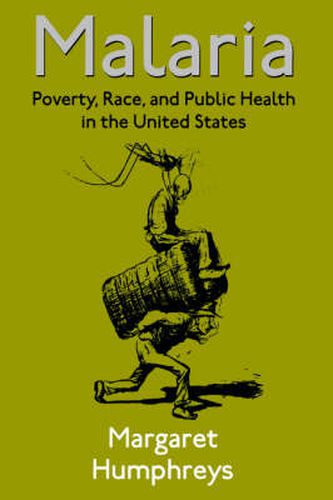Readings Newsletter
Become a Readings Member to make your shopping experience even easier.
Sign in or sign up for free!
You’re not far away from qualifying for FREE standard shipping within Australia
You’ve qualified for FREE standard shipping within Australia
The cart is loading…






In this examination of malaria, Margaret Humphreys presents a book-length account of the parasitic, insect-borne disease that has infected millions and influenced settlement patterns, economic development, and the quality of life at every level of American society, especially in the south. Humphreys approaches malaria from three perspectives: the parasite’s biological history, the medical response to it, and the patient’s experience of the disease. She addresses numerous questions including how the parasite thrives and eventually becomes vulnerable, how professionals came to know about the parasite and learned how to fight it, and how people view the disease and came to the point where they could understand and support the struggle against it. In addition the work argues that malaria control was central to the evolution of local and federal intervention in public health, and demonstrates the complex interaction between poverty, race and geography in determining the fate of malaria.
$9.00 standard shipping within Australia
FREE standard shipping within Australia for orders over $100.00
Express & International shipping calculated at checkout
In this examination of malaria, Margaret Humphreys presents a book-length account of the parasitic, insect-borne disease that has infected millions and influenced settlement patterns, economic development, and the quality of life at every level of American society, especially in the south. Humphreys approaches malaria from three perspectives: the parasite’s biological history, the medical response to it, and the patient’s experience of the disease. She addresses numerous questions including how the parasite thrives and eventually becomes vulnerable, how professionals came to know about the parasite and learned how to fight it, and how people view the disease and came to the point where they could understand and support the struggle against it. In addition the work argues that malaria control was central to the evolution of local and federal intervention in public health, and demonstrates the complex interaction between poverty, race and geography in determining the fate of malaria.